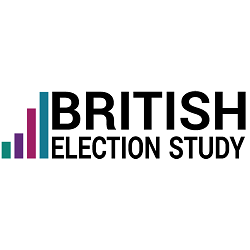News - BES Resources
Here you will find a range of resources that we think may be helpful in analysing BES data.
The following links may be helpful in accessing statistical software commonly used to analyse social science data:
• stata
• SPSS
• Installing R
• RStudio
Release of the 2024 BES Expert Survey
The BES Team is happy to announce the release of the 2024 British Election Study Expert Survey. The expert survey asked academics working in British universities to assess the policy positions of the major political parties in Britain. These included parties’ left-right positions, their immigration…
Reflections from the BES Team
In celebration of the 60th Year Anniversary of the British Election Study, members of the BES Leadership Team shared what they consider to be the highlights and most important impacts of the British Election Study. Professor Jane Green, Co-Director of the BES, said: ‘In…
Data Release: Waves 22 and 23 of the British Election Study Internet...
The British Election Study is pleased to announce the release of waves 22 and 23 of our Internet Panel survey. 28,113 respondents took wave 22 of the British Election Study. 19,241 of these also took wave 21, an overall wave on wave retention rate of…
Visualising Responses Over Time in the British Election Study, using R by...
Introduction This is a guide to identifying how people answered questions asked by the British Election Study, over time, using R. I wrote this guide because I could not find a pre-existing one. It has been cobbled together from multiple helpful blogs and teaching tools,…

New Report: Individual Electoral Registration and the British Election Study
In 2014 Individual Electoral Registration (IER) was introduced in England, Scotland and Wales. IER requires voters to register individually and provide individual identifying information, such as their date of birth and national insurance number. It replaced the previous system of ‘Household Electoral Registration’ (HER), whereby…
Weighting the BES Post-Election Random Probability Survey
The 2019 BES Post-Election Random Probability Survey uses gold-standard random probability methods. Still, it is important to ensure that it is representative of the target population. In this case, we take as our target all adults aged 18 or over who live in Great Britain…

Data updates
The BES team is pleased to announce an update to the BES internet panel (BESIP) data. This update does not include any new British Election Study data. Rather, it makes some important changes to how the data are structured. Those who have used previous releases…

British Election Study 2019 Data Release – Internet Panel, Results File, and...
The British Election Study is pleased to announce the first release of BES 2019 election data. This major release of new data consists of three new waves of our internet panel, an updated results and contextual data file, and data from an expert survey of…

New Class Divides in British Politics
Occupational class was once the fundamental structure behind the British party system, with the vast majority of the working class supporting Labour and the vast majority of the middle class supporting the Conservatives. This link frayed in the 2000s under the New Labour government and…

How Fresh Is the British Election Study Internet Panel?
The British Election Study Internet Panel offers huge advantages to studying British politics. So much of the current political situation can only be understood in terms of how individual voters are changing their attitudes and behaviours. The 16 waves of the panel conducted since 2014…
